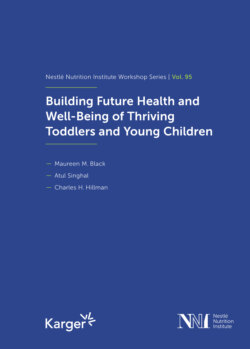Читать книгу Building Future Health and Well-Being of Thriving Toddlers and Young Children - Группа авторов - Страница 20
На сайте Литреса книга снята с продажи.
Autonomy and Independence
ОглавлениеThe acquisition of multiple skills, along with a desire to explore and model what they observe, contributes to toddlers’ sense of autonomy. As their mobility increases, toddlers want to do things themselves, often without help from others. Effective caregivers have rules for toddlers to enhance their development, to socialize them as family members, and to protect them from potential dangers. When toddlers perceive that rules are in conflict with their independence, they experience frustration. With their need to rely on caregivers, and their limited impulse control, temper tantrums can result. Temper tantrums are difficult for toddlers and caregivers. With effective management, often by helping the toddler focus on developmentally appropriate activities, temper tantrums can be prevented. As toddlers mature and acquire more cognitive and self-regulatory skills and better impulse control, their ability to handle autonomy and independence improves, and temper tantrums can be averted.
In summary, child development is cumulative and dynamic during toddlerhood, building on skills acquired during infancy. Gross motor advances (crawling, walking, running, and climbing) enable toddlers to explore their physical environment as they engage in goal-directed behavior. Fine motor advances enable toddlers to pick up small objects, manipulate eating utensils, and self-feed. Oral motor and language developments enable toddlers to chew complex foods, to express themselves and communicate, and to negotiate. With enhanced cognition, toddlers can solve problems, recall the location of hidden objects, and play simple games. Toddler’s social development includes prosocial skills, such as empathy and recognition of others’ emotions, and self-regulation, such as controlling their thoughts or behavior in response to specific contexts and situations. These emerging skills bring increasing autonomy, often accompanied by impulsivity to satisfy their desires immediately. When combined with toddlers’ changing nutritional needs, their increasing autonomy can present challenges to caregivers, especially during meals.
